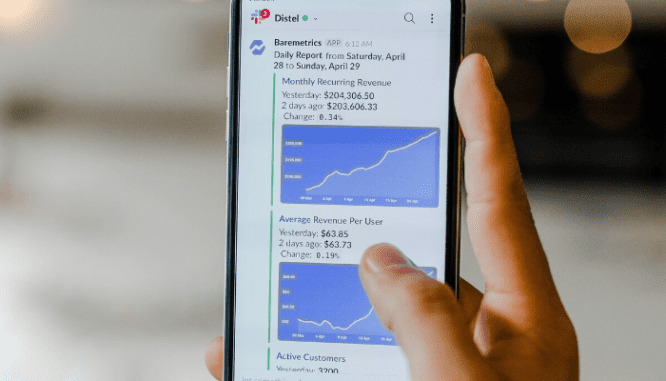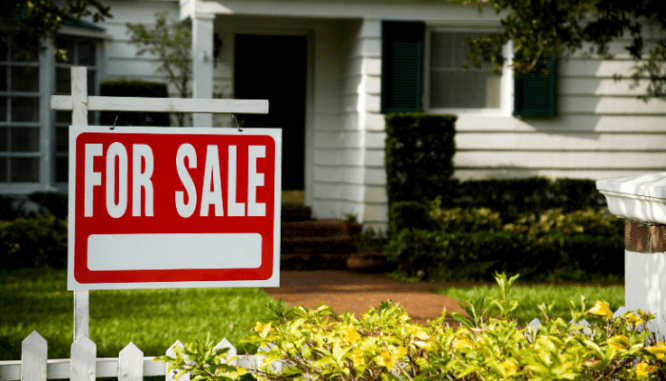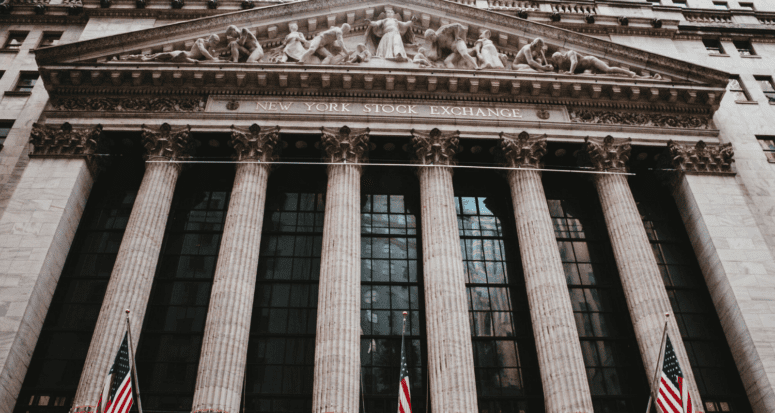Is the Housing Market Going to Crash Again? Here’s How You Can Tell
- Published on
- 5 min read
-
 Denis Storey Contributing AuthorClose
Denis Storey Contributing AuthorClose Denis Storey Contributing Author
Denis Storey Contributing AuthorBorn in Hawaii and raised in Kansas City, Denis Storey migrated to Denver in 1998 for a job at a daily newspaper and never left. Denis spent more than 15 years spent covering health care and health care reform, insurance, employee benefits, human resources, and retirement planning. More recently, he’s spent time covering topics such as food, food safety, technology, and real estate.
At HomeLight, our vision is a world where every real estate transaction is simple, certain, and satisfying. Therefore, we promote strict editorial integrity in each of our posts.
Whispers of another housing market crash have swirled since soon after the last one in 2009. Whether its lingering shell shock or national media hype, consumers have spent nearly a decade waiting for the housing market to fall off a cliff again. And now that the coronavirus has brought the world economy to a standstill, plenty are wondering: Is it about to happen again?
For Oklahoma City agent Brett Boone, who works with 83% more single-family homes in the area than the average agent, the best way to keep tabs on real estate is locally.
“Most of the people I talk to are basing their information off of what they read or are seeing on the news,” he explains.
“I’m not finding that people are going online doing their own research or talking to real estate professionals to get an accurate idea of what’s going on in their local market.”
And this oversight could be a big mistake.
Naturally, no one wants to buy a house at the top of a market, but how do buyers — and sellers — know if the housing market is going to crash again? Here are some of the big signs to watch.

1. Consumer sentiment
While the adage holds that perception is reality, it doesn’t necessarily translate to the housing market. Certainly, a panic among homebuyers can drag down sales, but consumers have been worried about another crash for more than a decade and that hasn’t hurt home sales.
Consumer confidence in the real estate market fell sharply in March 2020, based on Fannie Mae’s latest Home Purchase Sentiment Index, plummeting 11.7 points to 80.8 in March, the lowest rating since December 2016. Fewer people think it’s a good time to buy or sell a house right now.
Unfavorable economic conditions was the most popular reason (at 47%) why people don’t think it’s a good time to sell a house, and 10% more Americans said they were concerned about losing their job in the next year.
2. Home prices rise… then they don’t
Economists know all markets are cyclical, and what goes up usually levels off or even dips. We saw that in 2019, when housing price growth began to slow down. According to a 2019 UBS study, average home price growth around the world has slowed for the first time since 2012. In the United States, “index scores have not risen in any of the U.S. cities in our study for the first time since 2011.”
Fannie Mae’s March 2020 Home Purchase Sentiment Index showed that 22% fewer respondents think home prices will go up in the next 12 months.
In 2019, the number of existing-home sales was flat compared to 2018, with 5.34 million existing homes sold in the United States. Those numbers were down from a decade-high peak of 5.51 million sold in 2017.
Nevertheless, the U.S. median home price jumped 6.2% in 2019, marking an all-time high of $258,000, according to ATTOM Data Solutions’ Year-End 2019 U.S. Home Sales Report.
When the gap between home price and wages grows, houses become less affordable. That’s why the U.S. cities most overvalued by UBS include New York, Los Angeles, and San Francisco. As this accelerates, a dearth of buyers will eventually drag down prices.
Additionally, cities with rising prices despite growing inventories present another troubling sign. A JP Morgan study points to cities such as Denver, Seattle, Washington, D.C., Portland, Oregon, and Boston, that present what researchers call “a correction risk”: there are more homes for sale, but the increase in supply is not making housing more affordable in these areas.
On the flip side, if enough sellers can’t get their homes sold and start cutting prices in a bid to attract more buyers, this trend could signal a downturn in the market.

3. Rising mortgage rates
Rising mortgage rates are another potential sign of a looming crash.
This can be a double-edged sword, discouraging both buyers and sellers who might not be able to move up if their mortgage rate would increase significantly, and therefore might opt to stay put and renovate instead of moving.
Mortgage rates have hovered at near-historic lows for years. Freddie Mac just reported that a 30-year fixed-rate mortgage averaged 3.33% for the week ending April 2, 2020, down from 4.08% this time last year. That might seem like a big shift, but remember that mortgage rates were in the double-digits all throughout the 1980s.
Additionally, a 15-year fixed-rate mortgage averaged 2.82%, down from 3.56% last year.
“Mortgage rates have drifted down for two weeks in a row, and that drop reflects improvements in market liquidity and sentiment,” Sam Khater, Freddie Mac’s Chief economist, explains in a press release announcing the latest numbers.
The falling rates reflect recent actions by the Federal Reserve, which slashed the overnight exchange rate to nearly zero in a pair of emergency rate cuts earlier this year. This rate does not dictate what mortgage rates will do directly, but it applies upward or downward pressure on those rates.
4. There is a rise in lightly regulated mortgages
It’s no secret that a glut of unqualified buyers purchasing overvalued homes was responsible for the 2008 housing market crash; when those buyers defaulted on their mortgage loans, and the assets backing those loans weren’t worth the money lost, it was the catalyst for a downward financial spiral and, eventually, recession.
When buyers lose their jobs or have to drain their savings accounts to pay bills, they aren’t buying houses. That cause-and-effect further depresses any market that’s already struggling.
After the Great Recession, lenders were required to increase their lending standards, including requiring higher credit scores or bigger down payments.
Right now, the Federal Housing Administration’s official minimum credit score to buy a house is 580 with a 3.5% down payment, but it can dip as low as 500 if the borrower can come up with 10% down.
But lenders can add overlays, or additional requirements, on top of the FHA’s minimums. U.S. Bank, for example, requires borrowers to have a much healthier 680 credit score for a mortgage with them, as well as a much better debt-to-income ratio. And when the economy begins to dip, you also see lenders begin to implement overlays; we are seeing this happen during the coronavirus pandemic.
When lenders start loosening up these requirements, on the flip side, it could start a cycle that will result in a housing market crash.
It’s also worth noting that tighter qualifications have translated into record low foreclosures pre-coronavirus. In February, there were only 48,004 foreclosure filings in the United States.

5. Homes are on the market longer
Another leading indicator of the housing market’s health is how many days homes stay on the market, on average. When days stretch into weeks, and weeks drag into months, that’s normally a sign that there aren’t as many buyers interested — or able — to get a deal done.
In Colorado, to take one example of a particularly robust market, that window is shrinking. In March 2020, the average days on market for a home dropped 5.8%, to 49 days. In 2019, homes stayed on the market in Colorado an average of 55 days. Considering it takes 30 days to close on a house, that suggests houses remain listed about three weeks, right around the time most sellers start considering a price change.
So if these days on market numbers start to climb, a housing market crash could be looming, which could also lead to a growing inventory.
6. Investors start buying more homes
Investors try to buy low and sell high whenever possible, which means they’re going to be more active when the market is falling or bottomed-out — so if you see a lot of homes getting snapped up by investors, it’s a good sign that you’re in the middle of a crash.
Remember, though, that investors buy homes all over the country, and they’re often looking for long-term value instead of short-term return. The Wall Street Journal reported last year that the number of investor purchases — from giant equity firms to mom-and-pop landlords to individual flippers — hit an all-time high, making up 11% of housing sales in 2018.
More recently, ATTOM Data Solutions revealed a little bit of good news that is actually bad news for flippers. On one hand, the number of homes flipped in 2019 made up 6.2% of all home sales, an 8-year high. On the other, profit margins on those flips fell 3.2%.

How do you know a crash is coming?
Overall, there are a few things Boone looks for that might tell him the market might be in trouble.
“I look at my local market, I look at the average days on market, I look at what sellers are doing. I look at inventory,” he explains.
“Am I seeing homes come off the market? Am I seeing sale prices change drastically? Do I see a lot of people trying to fire-sale? That’s something we see here when oil and gas prices go down.”
In short, there’s no foolproof way to predict a housing market crash, but you can watch some of these signals and make your own prediction. To understand how those signals operate in your market, a local agent will be able to provide the best advice.
Header Image Source: (Aditya Vyas / Unsplash)
